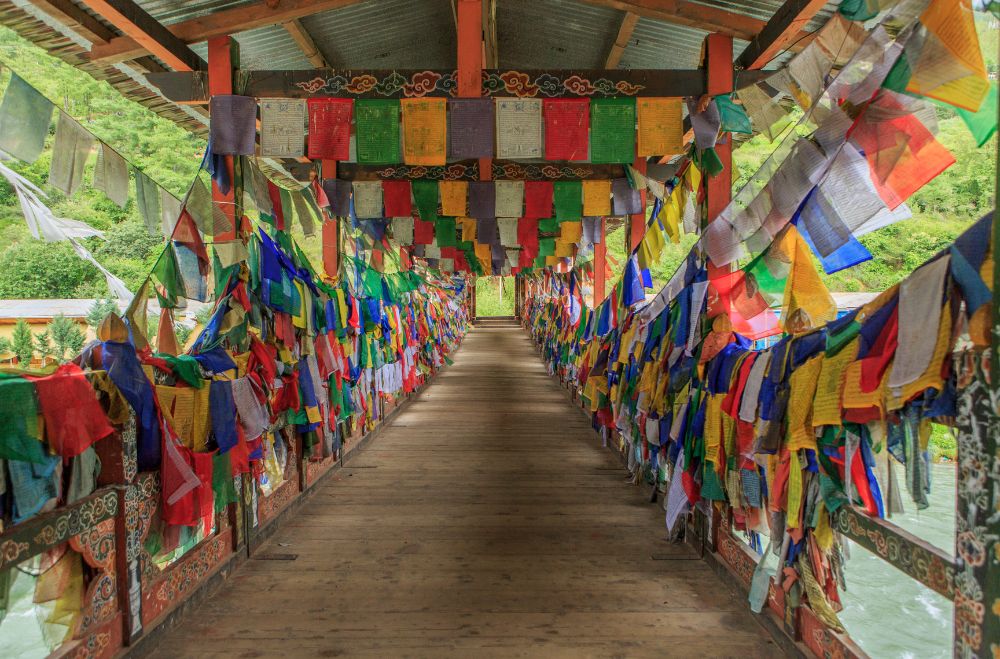Tucked between China and India, the small South Asian country of Bhutan is surrounded by beautiful natural landscapes and has developed one of the world’s most unique cultures.
From incredibly tasty and spicy cuisine to the unmatched wonder found in the surrounding Himalayan mountains, Bhutan holds a bounty of rich traditions and adventures to be experienced.
Bhutan is also driven by sustainability and happiness to preserve a brighter future, so I can hardly imagine a place I’d rather visit! These fun facts will impress you.
1. Land Of The Thunder Dragon
In Bhutan’s native language of Dzongkha, Bhutan is pronounced Druk Yul, meaning land of the thunder dragon. This name is often attributed to the many thunderstorms that occur in the valley of Bhutan!
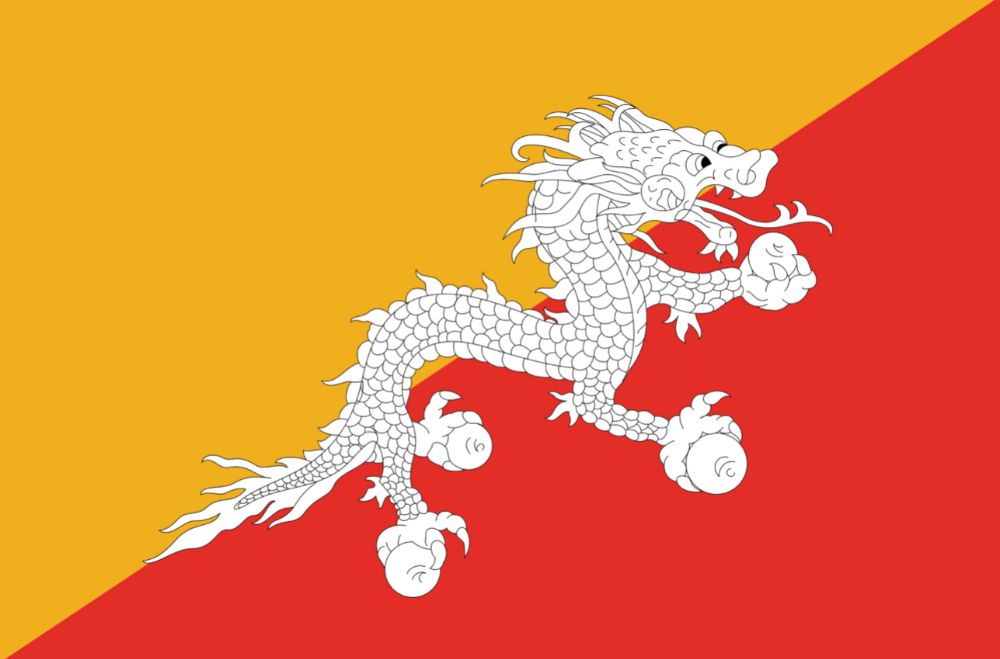
The legendary druk dragon is seen on Bhutan’s national flag and is considered to be one of their national icons.
2. Gross National Happiness Is An Official Measurement Index In Bhutan
Bhutan is often considered one of the happiest places in the world, and they have their happiness statistically measured to prove it! Bhutan sees much more value in their Gross National Happiness (GNH) ratings than their Gross Domestic Product (GDP) ratings.
Even though Bhutan’s economy has been on the rise, they see the importance of living harmoniously with nature and seeking internal happiness with their own traditional and cultural values.
3. Bhutan Is The Only Carbon Negative Country In The World
Not only is Bhutan one of the happiest places on Earth, but it is also one of the most environmentally friendly countries too. Approximately 65% of Bhutan is covered in forest, and these forests are legally protected by Bhutan to prevent deforestation and to preserve the nation’s natural landscape.
Bhutan continues to strive for environmental preservation. Both you and Bhutan will breathe happily ever after!
4. Home of the Highest Unclimbed Mountain in the World
Bhutan’s famous mountain of Gangkhar Puensum lies on their border with China and towers over the region at an impressive elevation of 24,836 feet! While not as tall as neighboring Mount Everest, it holds the unique record of being the highest unclimbed mountain in the world.
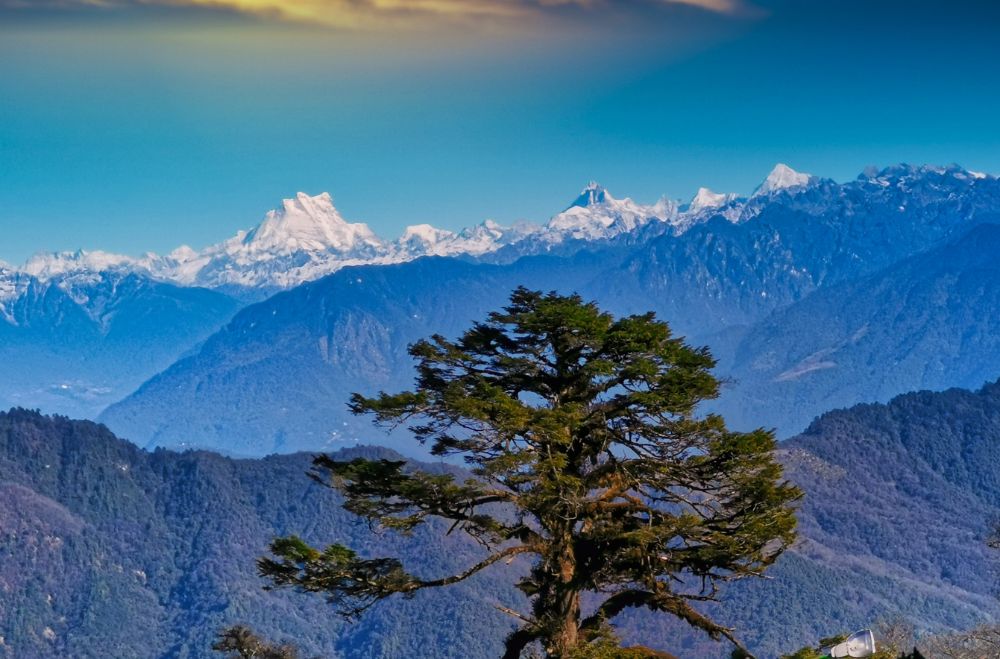
Due to Bhutan’s spiritual beliefs, they have since completely restricted access to the mountain in 2003, meaning the mountain will likely remain unclimbed for the foreseeable future.
5. Tourism Is Relatively New To Bhutan
In order to preserve their national identity, Bhutan has tried to limit the amount of foreign influence. It wasn’t until the UN recognized Bhutan as a country in 1974 that they began allowing tourists to visit.
Today, tourism plays a significant role in Bhutan’s economy.
6. Bhutan Is One Of The Smallest Countries In Asia
Bhutan is a tiny country in the Himalayas, nestled snugly between China and India.
With about 14,824 square miles of land area, Bhutan is only about the size of Maryland, United States. It’s one of the smallest countries in Asia, and is ranked #137 in land area out of all countries worldwide.
7. Archery Is The National Sport Of Bhutan
Archery is incredibly important in Bhutan culture and has been described by The Bhutan Olympic Committee as “a celebration of the Bhutanese way of life.” The bow and arrow also hold significant religious symbolism, being traced back to a story of a Buddhist monk who vanquished a blaspheming king with a bow and arrow.

Today, archery is celebrated in Bhutan as its national sport and many public games are held as a form of competition and entertainment.
8. Free Education And Free Healthcare
Bhutan is still considered a third-world country due to their incredibly limited foreign relations and trade. However, they do offer free healthcare and education for all of its citizens, leading to a remarkable rise in literacy.
As healthcare is widely available to all of its citizens, Bhutan has seen a consistent rise in its life expectancy over the past several decades. The average life expectancy is now 73 years.
9. Yetis Have A Conservation Area
Yes, you read that correctly, the mythical creatures known as yetis are protected in Bhutan! In fact, Bhutan has set aside a 750-square-kilometer sanctuary for them in what is known as Bigfoot Valley in Sakteng Wildlife Sanctuary.
Be sure to be on the lookout for the fabled yeti when you visit, or as they’re called in Bhutan, michum!
10. Paro International Airport Is Considered The World’s Most Dangerous Airport
Don’t worry, Bhutan’s airport isn’t dangerous in terms of crime, but rather in terms of the flight. Due to the airport being situated in a valley between mountain ranges, very few pilots are certified and know how to safely approach Paro airport.
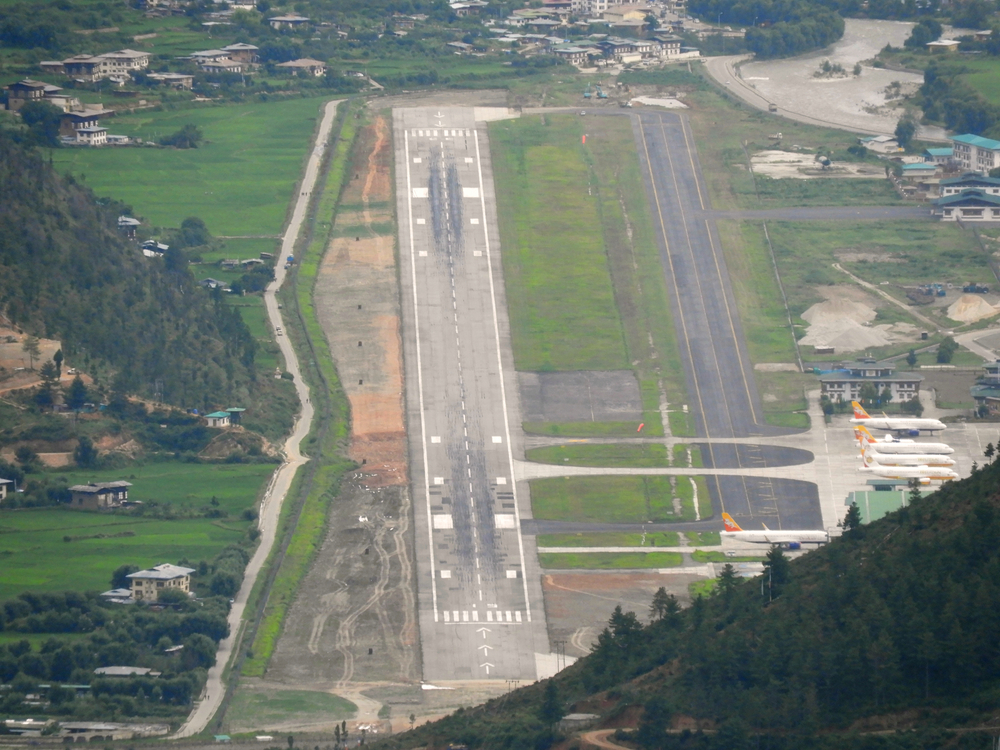
Landings and departures are completed during the daytime with clear skies. While the flight into Bhutan will be an exhilarating and anxious part of your trip, fortunately, the views from the plane are spectacular!
11. Bhutan Is Often Called The World’s Last Shangri-La
Shangri-La is a term used to describe a place as being a true utopia: a place of unmatched beauty, harmony, and perfection. Because of Bhutan’s minimal interactions with the outside world until the 1970s, much of the peaceful culture has been preserved.
The wondrous mountains, valleys, waterfalls, and fields of Bhutan capture a sense of pure beauty, and the culture’s unique architecture, textiles and art truly allow for Bhutan to maintain the title of being a Shangri-La!
12. Bhutan Is A Matriarchal Society
One of the most intriguing facts about Bhutan is that it remains a truly matriarchal society. While men still can hold seats of governmental and social power, Bhutan’s population generally prefers and trust the decisions made by women leaders.
For example, women are almost always the people trusted to own property and businesses, and men are expected to fully adapt to the woman’s way of life when they are married. Women still continue to fight for their rights of representation in Bhutan, hoping to further grow their presence in Bhutan’s national assembly and council!
13. The National Animal Of Bhutan Is The Takin
Takins are one the most unique goats you will probably ever lay your eyes on. Looking like a cross between a goat, a capybara, and an ox, they are truly a sight to behold!
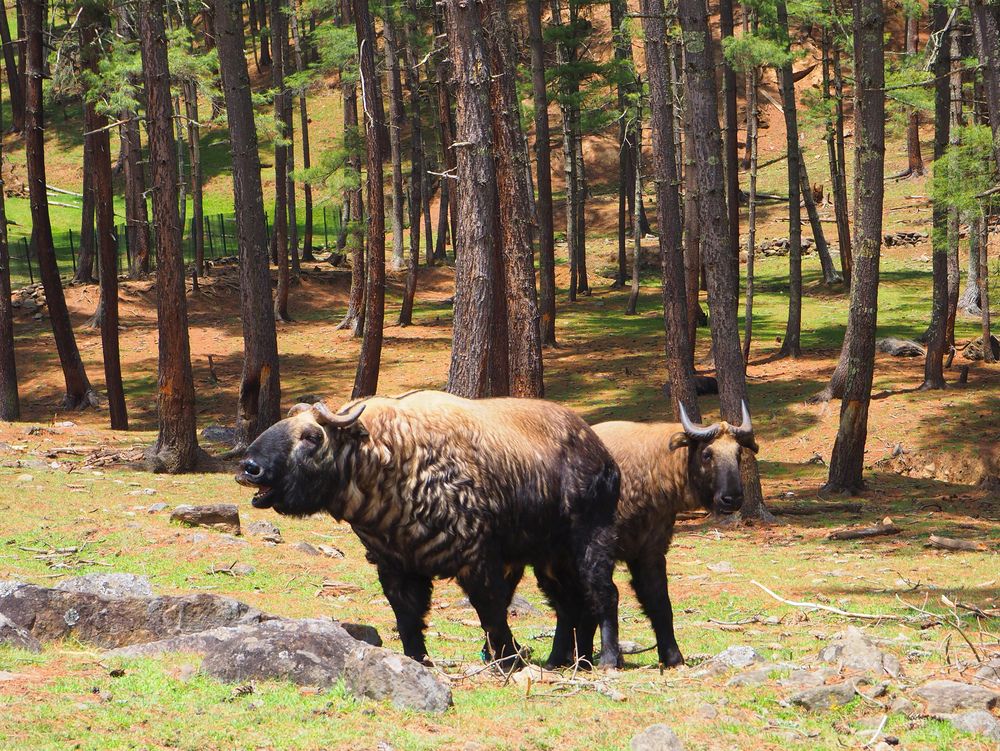
Takins are a mammalian goat-antelope that has adapted well to the mountainous terrain and are sustained by a herbivorous diet of wild grasses and bamboo.
14. Traveling To Bhutan Is Intentionally Expensive
Despite all of the wonderful and intriguing parts of Bhutan that we just explored, Bhutan can be tricky to travel to. Bhutan has adopted high-value, low-impact tourism to remain sustainable.
This includes paying a daily visitation fee:
| High Season | Low Season |
| $250/day | $200/day |
| March April May September October November | January February June July August December |
Fortunately, food, transportation and accommodation are included in this daily fee. Certain destinations will also include a guide.
So while it might seem odd and definitely expensive to pay a daily fee, you’ll be exploring this fascinating country with so few other tourists!

